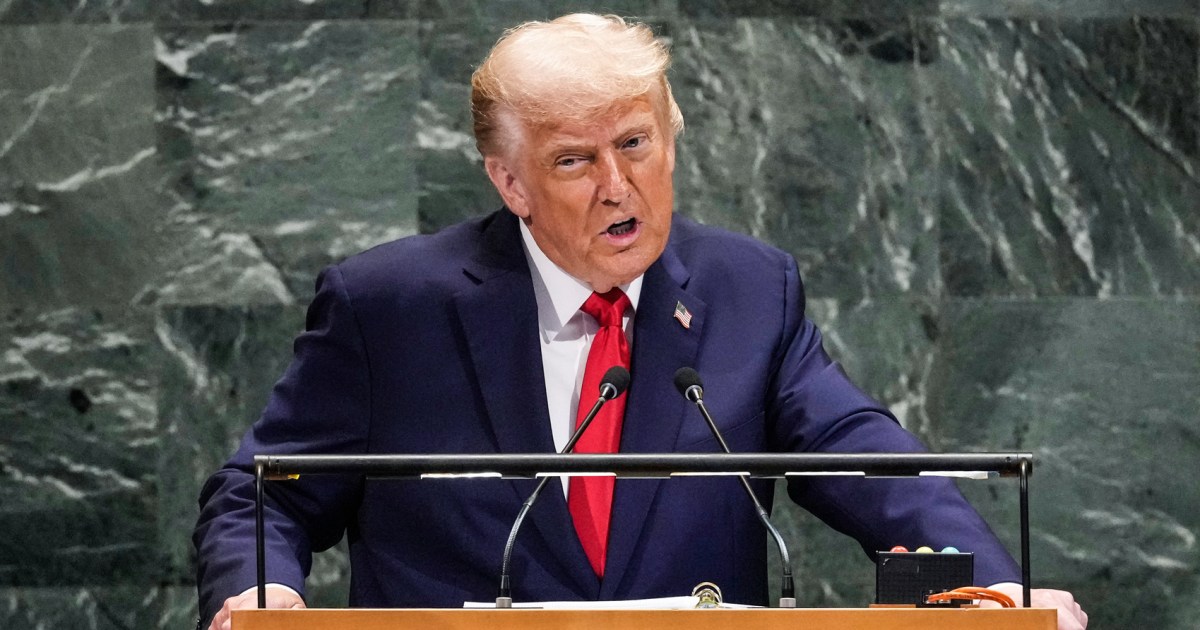U.S. Stance on AI Governance Challenges International Collaboration at the U.N. General Assembly
A Divisive Week in New York
This week at the United Nations General Assembly in New York, the conversation surrounding artificial intelligence (AI) took center stage, particularly as the United States positioned itself against the tide of global leaders advocating for collaborative frameworks. While many prominent figures from around the world, both political and corporate, called for urgent international cooperation on AI, the U.S. delegation prominently criticized the potential role of the U.N. in AI governance.
Rejecting Centralized Governance
During the Security Council meeting on AI, Michael Kratsios, the director of the Office of Science and Technology Policy, expressed the U.S. opposition to centralized control over AI. “We totally reject all efforts by international bodies to assert centralized control and global governance of AI,” he declared. According to Kratsios, the future of AI innovation lies not in “bureaucratic management” but in supporting the “independence and sovereignty of nations.” This stark rejection of collective governance raised eyebrows, as it contrasted sharply with the ideas being put forth by other nations.
Innovative Solutions Amidst Controversy
While Kratsios dismissed collaborative governance, President Donald Trump introduced an ambitious initiative aimed at AI oversight. In his speech, he mentioned that the White House is working on an “AI verification system that everyone can trust,” specifically to enforce the Biological Weapons Convention. Trump acknowledged AI’s duality—its potential for great good alongside its inherent dangers. “AI could be one of the great things ever,” he stated, suggesting that the U.N. could play a constructive role in this endeavor.
Navigating International Perspectives
A State Department spokesperson expanded on the U.S. position, emphasizing support for nations aligned with American values to collectively encourage AI development. This stance highlighted an approach that favors innovation while countering perceived authoritarian influences. However, the comments rejecting multi-national efforts raised debates about the effectiveness of a non-cooperative model, especially in a field where technological challenges extend beyond national borders.
UN Initiatives for Cooperation
In stark contrast to U.S. sentiments, the U.N. took a significant step forward by introducing the Global Dialogue on AI Governance. This initiative aims to create a dedicated body for discussing AI governance among all member states. U.N. Secretary-General António Guterres emphasized the need for a responsive framework capable of keeping pace with rapid technological developments. He posited that the dialogue intends to set the foundational elements of a global AI ecosystem, a sentiment echoed by Nobel laureate Daron Acemoglu, who underscored AI as a substantial risk to humanity.
U.N.’s Role Misunderstood?
Amandeep Singh Gill, the U.N.’s special envoy for digital and emerging technologies, attempted to clarify misconceptions about the organization’s role. In an interview, he asserted that the perception of the U.N. seeking centralized regulation of AI is misrepresented. He clarified that the U.N. aims to provide platforms for international cooperation without infringing on sovereign regulatory powers.
Global Responses to Bipartisan Tensions
China’s Vice Minister of Foreign Affairs, Ma Zhaoxu, articulated the need for an inclusive, non-discriminatory technological development environment, siding with the idea of a central U.N. role in AI governance. Meanwhile, Spanish Prime Minister Pedro Sánchez championed international cooperation, arguing for coordinated global AI efforts through the U.N. as a legitimate platform for consensus-building.
The Emerging Landscape of AI Governance
Experts reacted to the week’s developments by acknowledging the complexity of global AI challenges. Renan Araujo of the Institute for AI Policy and Strategy mentioned that while the aim is to avoid cumbersome governance structures, the challenges associated with AI will increasingly require transnational solutions.
Historical Context of U.N. Initiatives on AI
This discourse around AI at the U.N. isn’t entirely new. The U.N. had previously established the Global Digital Compact, which laid groundwork for a broader dialogue on AI and set the stage for an international scientific panel. Announced recently, this panel will assess AI’s capabilities and risks, with nominations now open—a step that might yield impactful insights and guidance as the dialogue progresses.
Looking Ahead: A Timeline for Action
The newly launched global dialogue, which is expected to hold its first full meeting in Geneva in the summer of 2026, sets the stage for the essential discussion about AI’s future. In the meantime, the actions and functions of this dialogue remain to be defined, illustrating a pivotal moment for international cooperation—or the lack thereof—in one of the most rapidly evolving fields of our time.



